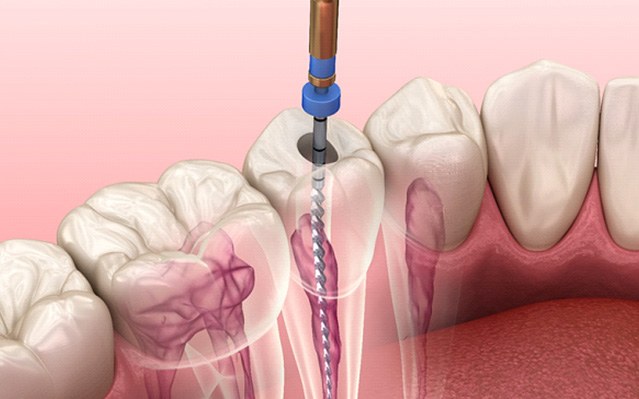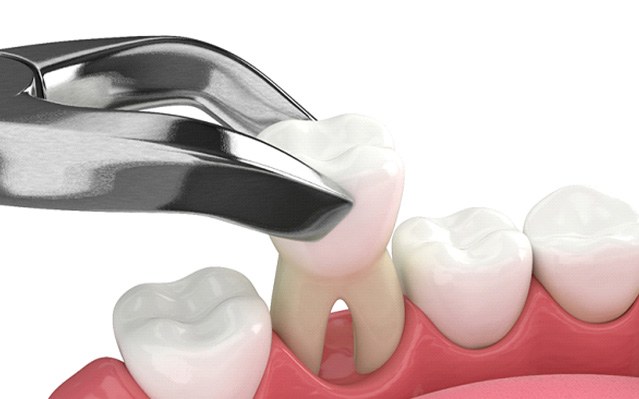Emergency Dentistry – Rockville, MD
In Pain? Get Help Right Away
Sometimes you might suddenly experience severe pain in your teeth or gums without understanding why. In other cases, you may find that your teeth have been badly damaged in an accident. No matter what form they take, dental emergencies can be stressful and scary. But with a gentle, experienced dentist like Dr. Modarres to turn to, you can feel better knowing you have someone you can trust to take care of your smile should the worst happen. Call Rockville Family Dentistry immediately if you need emergency dental treatment.
Why Choose Rockville Family Dentistry for Emergency Dentistry?
- Same-Day Emergency Dental Appointments
- Accommodating Your Financial Needs
- Warm & Safe Family-Oriented Dental Office
How We Treat Dental Emergencies

No matter what kind of dental emergency you’re suffering from, our team is here to help you find a solution to your problem and restore your oral health. Our approach to dealing with emergency dental issues is as follows:
- Same-Day Appointment: Upon receiving your call, we’ll ask about your symptoms, give you first-aid advice tailored to your situation, and make arrangements to see you quickly. Same-day appointments are available when urgent care is needed.
- Emergency Exam: What is the true source of your emergency? And how severe is the damage? To answer both of these questions, we’ll look at your mouth and take X-rays if needed.
- Review Findings: Our team will give you the results of our examination and let you know what types of treatment are available. When creating your emergency treatment plan, we’ll be sure to give you our estimate for the timeline and the cost.
- Get the Care You Need: We’ll carry out the agreed-on treatment plan as promptly as possible in order to protect your smile from further pain and damage.
The Most Common Dental Emergencies
Do you know what counts as a dental emergency? There are numerous situations that could qualify, and it’s always best to seek professional treatment as soon as you can before the problem has a chance to grow worse. Some common dental emergencies are listed below. Remember, if you’re not sure that urgent care is needed, you can always call us to see what our team recommends.
Understanding the Cost of Dental Emergencies

The only treatments we suggest will be the ones that we deem necessary for saving your smile and stopping your pain. We’ll spell out the associated costs from the beginning so that there aren’t any unwelcome surprises later on. Dental insurance usually offers coverage for most of the treatments associated with emergency dental care, but if you don’t currently have a dental plan, we can help you explore other options.
Keys to Preventing Dental Emergencies

There’s no foolproof formula for preventing dental emergencies, but it does help to have good habits like:
- Brushing and flossing two times every day to prevent cavities/toothaches
- Visiting your dentist at least two times every year for preventive treatment
- Not biting down on inedible objects or overly hard foods
- Using scissors to open packages instead of tearing them with your teeth
- Wearing a professionally personalized mouthguard to protect the teeth while playing sports
Root Canal Therapy

Root canal therapy involves removing the pulp inside an infected tooth in order to prevent bacteria from causing any further damage. Many people think root canal therapy is a painful procedure, but most of the pain comes from the infection that’s being treated. According to many patients, the treatment itself is actually no more uncomfortable than receiving a filling.
Learn About Root Canal Therapy
Tooth Extractions

We never want to have to remove a tooth, and we will only do so when there are no other options. Common reasons for extraction include excessive tooth decay, extensive damage that can’t be repaired with a crown, severe infection, and crowded teeth. Some extractions simply involve loosening the tooth and removing it with forceps; more complex cases may require surgery. No matter the situation, we can help you find a way to quickly replace the teeth in question.
Learn More About Tooth Extractions
Dental Emergency FAQs

Reading through the above information can give you valuable insight into everything from the common types of dental injuries to preventive tips. However, you may still have some questions on your mind. Well, we want to help! Keep reading for the answers to some of the most frequently asked questions we get from patients regarding dental emergencies in Rockville.
Will My Toothache Go Away on Its Own?
Despite popular belief, toothaches do not heal on their own. In fact, a once painful toothache that has “disappeared” may actually indicate that the infection has damaged the nerve of the tooth! Therefore, when you have a toothache, it’s always a good idea to schedule an appointment with your dentist right away. From there, they can determine the root of the problem and put a plan in place to restore the look and function of your smile.
Should I Visit the Emergency Room First for Dental Emergencies?
If your dental emergency has resulted in a potentially life-threatening condition, like difficulty breathing or a broken jaw, then you should head to your local emergency room first. However, ERs typically don’t have dentists on staff, meaning they won’t be able to address dental emergencies effectively. Therefore, with all other smile-related injuries (lost filling, knocked-out tooth, etc.), your first call should be to your emergency dentist in Rockville.
My Chipped Tooth Doesn’t Hurt. Do I Still Need a Dental Visit?
Even if your chipped tooth doesn’t hurt, it’s a good idea to schedule an appointment with your dentist. Although you may not be in any pain, the inner layers of your tooth could be vulnerable to damage. Plus, your chipped tooth may break further without professional attention, resulting in sensitivity, soreness, and overall discomfort. With that being said, you can most likely afford to wait a day or two until your appointment if needed. Just make sure you don’t put off seeing your dentist for too long.
What Should I Keep in My Emergency Dental Kit?
From a lost filling to a knocked-out tooth, dental injuries can be anxiety-inducing. To make the entire experience as stress-free as possible, preparation is paramount. You should keep an emergency dental kit accessible with these essentials:
- A storage container large enough to fit a tooth or restorations
- Sterile gloves
- Gauze pads
- Cotton balls
- Dental cement (or other temporary filling material)
- Denture adhesive
- Petroleum jelly
- Anti-inflammatories such as ibuprofen
- Orajel
- Floss
- An ice pack or cold compress
- Contact information for your emergency dentist in Rockville

